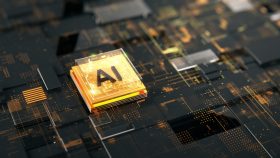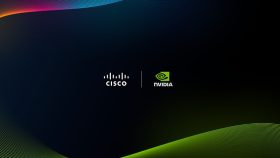Groq Raises $750M for GroqCloud

With neocloud financing and construction activity at fever pitch, Groq doesn't want to be left out. The company this week announced a $750 million round with a post-money valuation of $6.9 billion.
They are big numbers with a big valuation. By comparison, Groq was valued at $2.8 billion when it it completed a $640 million Series D last year.
Groq's total funding is a bit murky—specifics on Series B are scarce, at least in publicly available sources—but it's raised somewhere around $1.8 billion in five rounds. This latest round was led by Dallas-based fund Disruptive and included Blackrock, Neuberger Berman, Deutsche Telekom Capital Partners and "a large US-based West Coast mutual fund manager," according to the press release.
Groq emerged in 2016 as a chip company, developing a "language processing unit" called the LPU Inference Engine, designed purely for machine learning inference. But Groq doesn't sell chips or cards. Its business model is based on the GroqCloud, and it also offers an on-premises option in the form of the GroqRack.
From Saudi to Finland
We've discussed neocloud providers turning into datacenter developers. In a like vein, NVIDIA, a chip maker, runs its own cloud that could count as a neocloud.
For Groq, the cloud thing is relatively new. The GroqCloud was built up during the past year but as established a broad international footprint with its handful of sites.
In 2024, Groq and Aramco announced plans for the world's largest inferencing datacenter, which came online in December 2024. In February 2025, the Kingdom of Saudi Arabia followed up with a $1.5 billion commitment to buy more Groq chips.
In North America, Groq is operating datacenters in Houston (leased from DataBank) and Dallas (leased from Equinix), both brought up in May 2025. That same month, Groq announced a partnership with Bell Canada to be part of a sovereign AI deployment spanning six sites. The Groq announcement is the first of those, housed in a datacenter in Kamloops, British Columbia.
Just last month, Groq and Equinix announced plans to deploy in Helsinki, extending GroqCloud's footprint into Europe. Similarly to the Saudi and Canadian deployments, this one is driven by demand for localized AI infrastructure, as the Equinix press release emphasizes.
Old School Groq
Groq's roots are in its chips, though. Founder Jonathan Ross, who remains CEO, came from Google, where he started the side project that would become the Tensor Processing Unit (TPU). Groq, founded in 2016, was an effort to advance to the next step, building a chip designed from scratch to do inferencing.
Rather than add more cores for performance, Groq aimed at a massively parallel approach, arguing this would provide better performance and use significantly less power.
A recent Groq blog explains many of the architectural details behind those claims. One crucial aspect to note is the compiler that oversees operations. Whereas GPUs rely on dynamic scheduling—sending jobs to available cores, wherever they may be—Groq's compiler schedules job execution rigorously, mapping out where tasks are being run and which chips are talking to one another. It's an obsessive approach that doubtless requires processing cycles and energy to complete, but it means the work is executed deterministically, and it avoids some of the sources of delays that arise in GPU clusters.
The Neocloud Way
For the kind of inference that runs in large datacenters, NVIDIA has ruled the day so far, but competition is starting to emerge. That includes Groq, as well as Cerebras and SambaNova among chip startups, but of course the one most observers are watching is AMD. Its Instinct MI355X chips came out this year, kicking off some notable deployments including Oracle (deploying more than 130,000 of the chips on Oracle Cloud Infrastructure), Vultr (which tells us it's turned up the largest MI355X cluster outside of Oracle), and TensorWave (trying to make a splash as an all-AMD neocloud).
Still, it's likely that inference will begin dominating the AI conversation soon, as enterprises increase their AI adoption and start getting pickier about things like performance and the economics of ever-increasing token counts.
Groq's performance puts them in that conversation, although it still faces the fact that AMD is a bigger company and more familiar to most enterprises. Therefore, it makes sense that building a cloud based on its own chip technology was Groq's best way to get more funding.
Futuriom Take: Financing for neoclouds is rampant, and investors who didn't get into the likes of a CoreWeave are doubtless scouting for GPU services. NVIDIA chip alternatives are hot and neoclouds are hotter. Groq has put itself in a position to ride that trend.




















